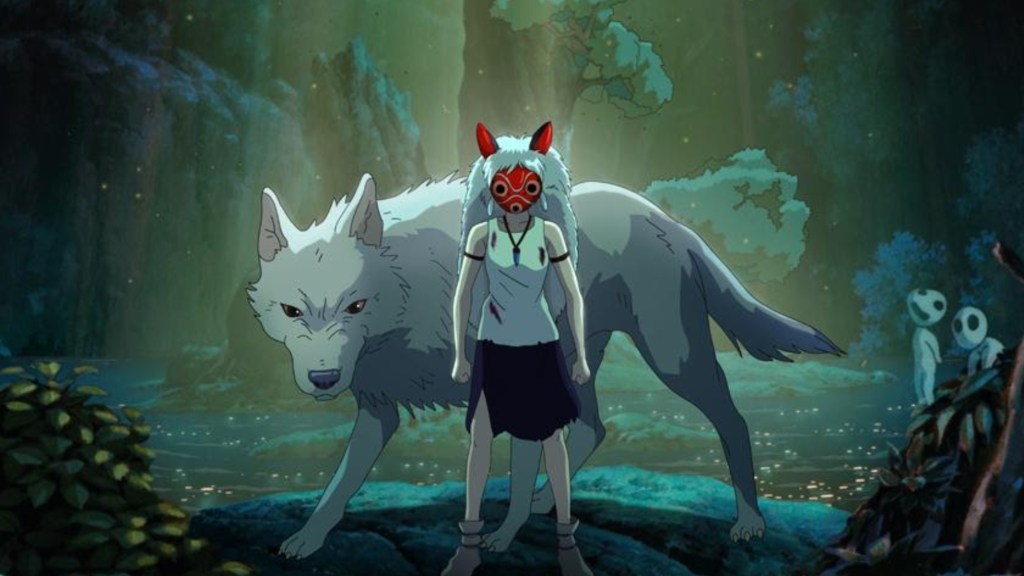Over the weekend, President Donald Trump announced plans to enact 100% tariffs on films produced outside of the United States, and this could mean trouble for anime’s growth in theaters in the country. Anime fans have likely noticed that in the last few years, the medium has gotten more popular than ever before. Thanks to the success of releases like Demon Slayer -Kimetsu no Yaiba- The Movie: Mugen Train back in 2020, the popularity of anime licensing has been driven to new heights. This was a big deal during the onset of the COVID pandemic, and has yet to yield in the years since.
Videos by ComicBook.com
Anime feature films have increased in popularity to such a notable degree that not only are more of them becoming available to screen in theaters than ever before, but they are being released at a much faster rate. Gone are the days of waiting over a year for an anime feature film to release on home media, and the days of limited screenings for these films are becoming far less common as well. But if the tariff plan truly goes into effect in the United States, it could mean all those advancements would take a huge step backward.

What Does Trump’s Tariff Plan Mean for Anime Movies?
As of Trump’s announcement on social media, the plan is to enact 100% tariffs on movies produced outside of the United States in order to promote more production in the country. This has yet to be clarified as to how this would be enforced, however, as it is also unclear as to what part of the movie’s production would actually be hit by the tariff. It seems to be focused on any part of the production that’s done outside of the United States for now, and unfortunately that also includes anime feature films that are done entirely in Japan.
If the tariff plan for films act in the same way that usual tariffs do on other aspects of imports to the United States, it might mean that an anime film will become doubly as expensive to license and release than it was before. If this turns out to be the case, it means that some films will be less enticing to release in theaters in the United States at all. Outside of major franchises already set for release like Demon Slayer: Kimetsu no Yaiba Infinity Castle, it might be more prudent for those hit by the tariffs to be more selective.
It further depends on who is the most impacted by the tariffs as that will likely be further impacting what anime films get a chance to release in the United States. It’s gone to such a scale recently that even some licensors like GKIDS are able to screen early episodes of TV anime releases in theaters to help celebrate their upcoming premieres, but if even these are impacted by tariffs they could be a thing of the past. And speaking of GKIDS, they could be hit in negative ways by this as well.
RELATED: This One Anime Movie Changed Everything For American Fans (And Gamers)

What Does This Mean for Studio Ghibli and Godzilla Films?
Depending on how these work, anime films will be more costly to release in the United States so there will be less of a chance that smaller films could hit theaters in a more than limited capacity. This includes even new films from hit studios like Studio Ghibli and Studio Chizu (of which Mamoru Hosoda has a new film hitting later this year), which were already going to need the support from fans. If they get harder to release, it might mean that fans in the United States won’t be able to see them until they get a home media release.
But that’s also if these new tariffs don’t impact home media releases either. If this extends to every aspect of a production outside of the United States, home media releases might be much more expensive as well. There are still streaming options that could be in place, but films aren’t available for streaming until much longer after they end their initial run in theaters in Japan. It will be going back to the way it was before the 2020s, and there were very few of these films that actually hit theaters.
Successes in the United States of the likes of Godzilla Minus One and Studio Ghibli’s re-releases (such as the recent IMAX re-release of Princess Mononoke) have been possible thanks to the anime boom of the early 2020s, but this could be a huge step back forward in the United States. Depending on just how devastating a tariff on foreign movie production will be in the future, we could see a major change to how they’re released overall.








